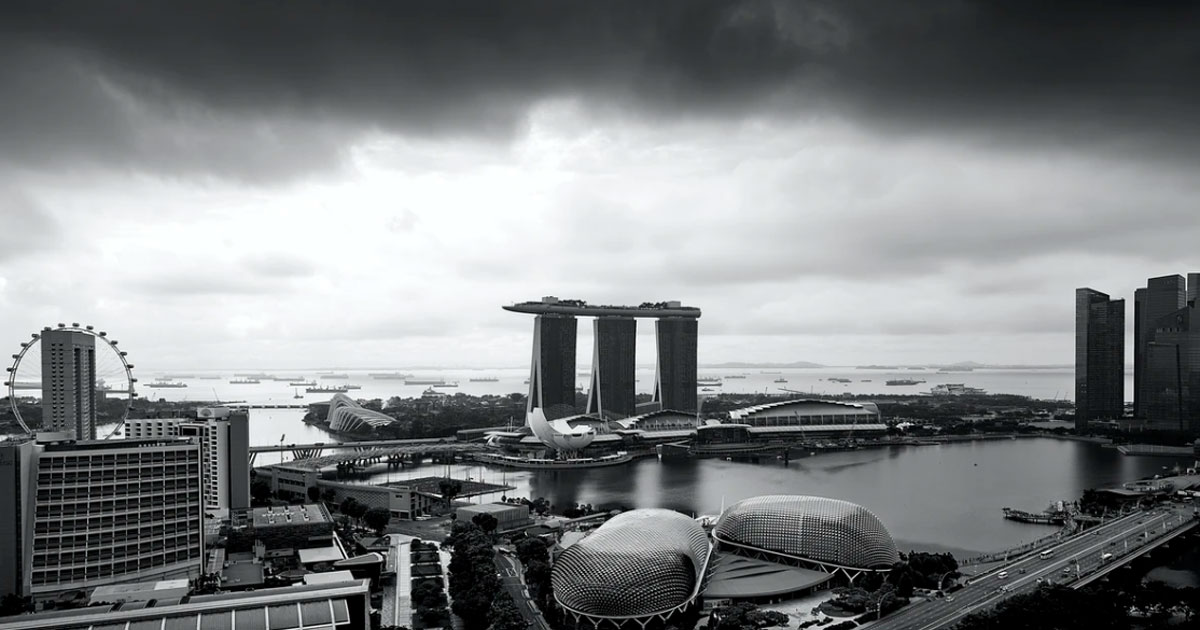Follow us on Telegram for the latest updates: https://t.me/mothershipsg
Singapore will enter into a recession in 2020, the Monetary Authority of Singapore (MAS) warned in advance on Tuesday, April 28 about the inevitable.
“The Singapore economy will enter into a recession this year,” MAS grimly said in its 132-page report.
This is due to the blow dealt by the Covid-19 pandemic.
Job losses and lower wages will be par for the course, with a rise in employment losses.
The report said: “Notwithstanding the large financial buffer provided by the government, as well as labour market adjustments on the intensive front, the large, abrupt shock to the Singapore economy is still likely to cause retrenchments and unemployment to rise.”
Recovery uncertain
Moreover, the length and intensity of the downturn is subjected to “significant uncertainty”.
Singapore’s projected economic growth is set to dip below the forecast range of -4 to -1 per cent.
It will be the worst-ever contraction on record, the central bank said in its latest half-yearly macroeconomic review.
Singapore's recovery is dependent on how the pandemic evolves and the efficacy of policy responses around the world, MAS also said.
The Singapore economy already contracted 2.2 per cent year-on-year in the first three months.
It was the first negative quarter since the global financial crisis in 2009.
Singapore’s worst recession to date occurred during the Asian Financial Crisis in 1998, when the economy experienced a -2.2 per cent growth.
The dotcom bust in 2001 saw the economy shrink 1.1 per cent.
The global financial crisis in 2009 saw full-year economic growth at 0.1 per cent.
MAS said the Singapore economy is likely to “contract more sharply” in the second quarter of 2020.
Third quarter recovery determined by external factors
Singapore’s prospects from the third quarter and beyond are hinged on external circumstances.
These are determined by the pace at which other countries recover from their own health and economic challenges, which are based on the transmission and incidence of Covid-19.
A strong rebound might be off the cards.
MAS said: “Given the likely protracted nature of this pandemic, containment measures can only be wound down in a gradual manner. In fact, intermittent rounds of re-containment measures may be required, thus hampering a decisive rebound in economic activity.”
Three risks
But things could still be worse.
A materialisation of three risks in “any combination” would drag Singapore’s economic growth below its current projected range.
The first is that any deployment of stricter containment measures around the world would further constrain economic activities.
The second is weak demand affecting the timing of recovery brought about by a pandemic that takes longer to be controlled and the resumption of global economic activity being delayed.
The third is the difficulty in achieving a complete containment given the “more contagious but less detectable nature” of Covid-19, compared to the SARS outbreak in 2003.
There are some bright sparks though.
Industries that manufacture medical products, as the pandemic has increased demand for ventilators, masks and test kits, will do well.
Growth is expected to moderate in the financial sector.
Those that are down will be hit hard
Those that will remain down are the usual suspects.
Activities in the travel-related and domestic-oriented sectors will remain in the doldrums.
Corporate spending on IT and professional services will be dampened.
Layoffs are likely to take place in travel-related industries, such as air transport and accommodation, as well as domestic consumer-facing services like land transport, retail trade, food services and other personal services.
Workers in retail trade, food and beverage (F&B) and recreation services are “most vulnerable” to lay-offs.
Slack in the labour market will increase, as working hours will be reduced and firms put employees on no-pay leave.
Some firms will also reduce workers’ salaries.
Steps have also been taken to boost job creation.
The SGUnited Jobs initiative, for example, aims to create about 10,000 jobs over the next year.
Firms that are weak before the Covid-19 pandemic are more likely to retrench, the 132-page report also said.
Top photo via Unsplash
If you like what you read, follow us on Facebook, Instagram, Twitter and Telegram to get the latest updates.
